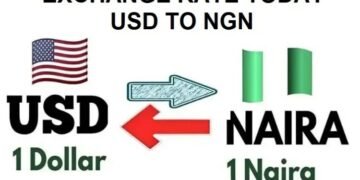Current Fuel Price in Nigeria Today 22nd July 2023
Since the withdrawal of subsidy on petrol and the floating of the naira against the dollar, marketers had continued to explain that the cost of PMS could rise to as high as N700/liter.
As of 22nd July 2023, Nigeria is experiencing an increase in fuel prices, with rates currently ranging between ₦590 and ₦620 per liter.
This means in some areas, fuel is been sold at the rate of ₦590, and in other areas, it’s sold for as high as 617/620.
Current Fuel Price and Economic Impact on Nigeria
The volatility in fuel prices has significant consequences for the Nigerian economy. As a country heavily reliant on fuel for transportation, electricity generation, and industrial production, variations in fuel costs impact inflation rates and overall economic stability.
- Inflation: Fluctuating fuel prices can lead to a domino effect on the prices of goods and services, as transportation costs increase. This inflationary pressure affects the cost of living for Nigerian citizens, particularly those with lower incomes, potentially leading to reduced purchasing power and decreased consumer spending.
- Business Operations: Businesses across various industries face challenges in maintaining stable production costs when fuel prices are erratic. Higher transportation costs and increased input expenses affect profit margins, hindering investment and growth.
Factors Influencing Fuel Prices
-
- International Crude Oil Prices: As Nigeria is a major oil-producing nation, international crude oil prices significantly influence the fuel prices in the country. Any fluctuations in the global crude oil market can directly impact the cost of fuel domestically.
- Government Policies: Government policies and regulations play a crucial role in determining fuel prices. Taxes, subsidies, and other economic measures can affect the final price of fuel at the pump.
- Exchange Rates: The exchange rate between the Nigerian Naira and other major currencies also influences fuel prices. A weaker Naira can result in higher fuel costs as it becomes more expensive to import crude oil and refined products.
- Supply and Demand: The supply and demand dynamics within the country can create price volatility. Changes in consumption patterns, refinery capacities, and logistical disruptions can lead to fluctuations in fuel prices.
- Transportation and Distribution Costs: The cost of transporting and distributing fuel from refineries to retail outlets also impacts the final price consumers pay for fuel.


















